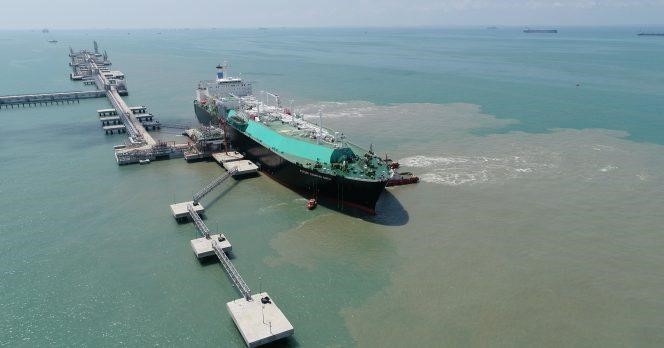Overview
We provide a wide-range of ready-to-use customer-centric solutions that ensures minimal business disruptions and improves our customers’ environmental footprint.
Discover the right cleaner energy solution for your business.
Processed Gas
Natural gas in its raw state is full of impurities. These include water, carbon dioxide, hydrogen sulfide, nitrogen, crude oil as well as heavier hydrocarbons that’s mostly made up of ethane, propane, butane and pentanes. Hence, before it can be used, natural gas has to be refined through a complex industrial process to produce pipeline-quality dry natural gas.
During the process, the raw natural gas is separated into its main components: sales gas, ethane, propane, butane and condensate. This process recovers the valuable components contained in natural gas and enables its efficient transport over long distances through the pipelines.
The sales gas, which comprises of mostly methane, is supplied to the power, industrial and commercial sectors while ethane, butane and propane are supplied to petrochemical plants as feedstock.
Our processed gas is mainly transported via the Peninsular Gas Utilisation (PGU) transmission grid, the longest pipeline in the country, spanning over 2,500km across Peninsular Malaysia.
Owned and operated PETRONAS Gas Berhad, the PGU project, which began in 1984, comprises mainly of gas transmission pipelines, supply pipelines and lateral pipelines. The system is made up of six gas-processing plants with a combined capacity of 2,000 million standard cubic feet per day (mmscfd), and produces methane, ethane, propane, butane and condensate.
Gassing Up and Cooling Down
Gassing Up and Cooling Down (GUCD) is a specialised service that displaces the inert gas from an LNG vessel’s storage tank, which is then cooled down to cryogenic temperature (-160°C). GUCD is required for LNG vessels, typically post dry dock, before the vessels’ next cargo loading.
Our GUCD services are available at the Regasification Terminal in Pengerang, Johor.

LNG Bunkering
With the International Maritime Organisations’ global sulphur cap in force from 2020, PETRONAS has taken proactive efforts to promote the use of LNG as a cleaner marine fuel in the shipping industry.
At the end of 2020, PETRONAS launched its LNG Bunkering solution and completed its maiden commercial bunkering delivery at Pasir Gudang via MV Avenir Advantage to Siem Aristotle on 9 November 2020 via PETRONAS’ LNG Bunkering Vessel (LBV).
With the strategic location of PETRONAS’ regasification facilities in Pengerang, Johor, and Sungai Udang, Malacca, we’ve strengthened Malaysia’s position as an LNG bunkering hub that provides reliable and cost-competitive cleaner energy solutions.
Additionally, our LBV can also operate as an LNG carrier for delivery to small gas demand centers inaccessible by large conventional LNG vessels
Virtual Pipeline System
As a progressive energy solutions partner, we take pride in serving customers with reliable access to cleaner energy such as natural gas.
The Virtual Pipeline System (VPS) solution is designed to provide off-grid customers with a reliable supply of cleaner energy by delivering LNG using road-trucks fitted with cryogenic ISO tanks.
Our VPS solution was launched in September 2020 to deliver LNG from the Regasification Terminal (RGT) in Pengerang, Johor to remote customers in Peninsular Malaysia. There have been more than 100 successful deliveries to customers by the end of 2020.
Through our VPS solution, industries that lack accessibility to the natural gas infrastructure now have the option to switch to gas as an alternative form of cleaner energy.
Carbon Dioxide
Carbon Dioxide (CO2) plays key roles and can be applied across numerous industries.
In its solid state (-78°C), CO2 is known as dry ice and is used as a cryogenic fluid for processes such as tissue conservation, deep-freezing and fire extinction due to its non-combustible nature.
CO2 that’s emitted into the atmosphere through chemicals, as well as oil and gas operations, can be kept and purified for use in many industries and applications, especially in the Food and Beverages industry.




